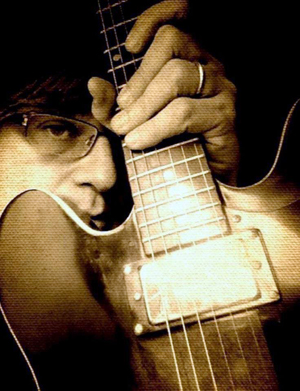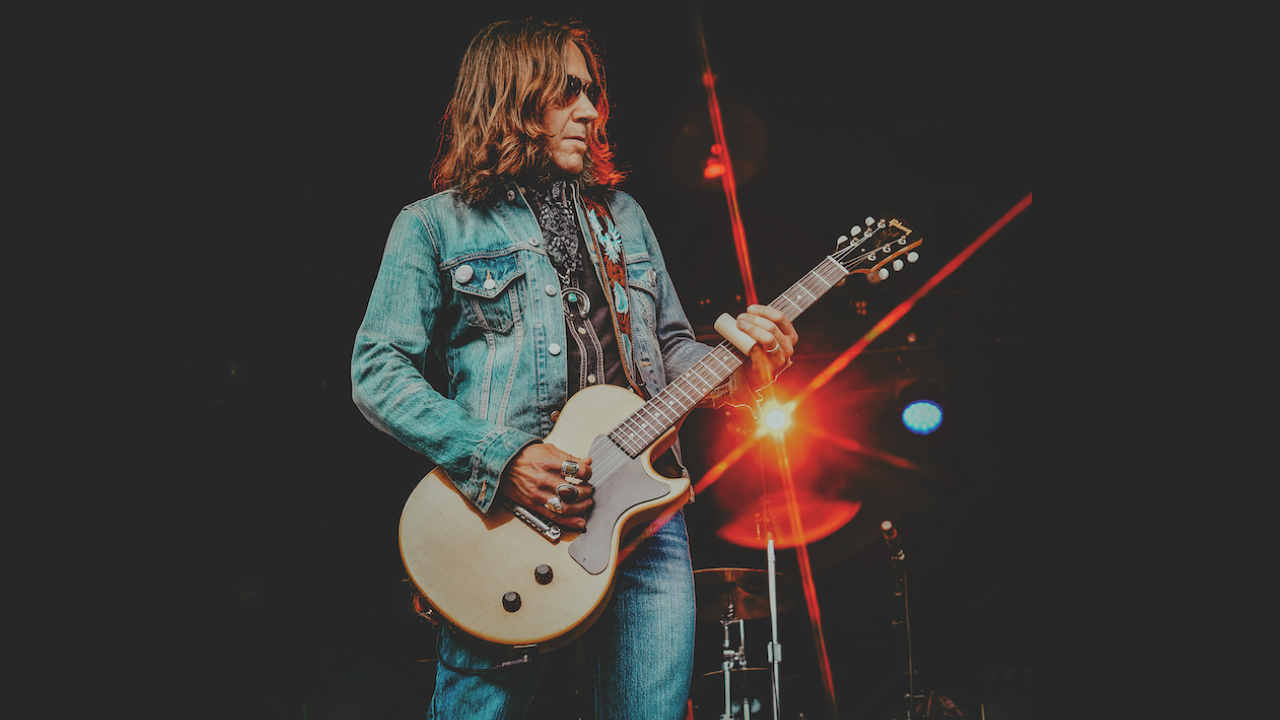Session Guitar: The 10 Most Frequently Asked Questions About Being a Session Guitarist

This week I'll be answering questions about being a session guitarist. Here we go!
01. The first question, in two parts, is from Jon Clarke. How many guitars do you bring to a session, and how do you know which sound you're going for before you get there? I often bring a minimum of six guitars to a session: four electrics, one steel-string acoustic and one classical. The electrics are a variety of single coil, humbucker, locking system and something hollow. Most times I never know what sound I'll use until I hear the track; then experience takes over, or it is dictated to me clearly.
02. Question 2 comes in from Billy Kennedy. What do you do if you are having an off day? Just not feeling it? We all have off days. However, I am a professional. That means I'm expected to perform. So even if I'm having an off day, my playing can only get so bad. I can always call upon experience. And being well practiced helps give a good performance. It may not be magic, but it will be damn good.
03. This one is from Bryan Lazerus. What is re-amping, how does it work, and is it something you use? Re-amping is where you take a dry signal split and send it out to an amp or software modeler and dial in the sound later. It is done to give the producer more control. Sometimes it is done to correct. I hate it. I strongly believe that the sound is part of the performance and will inspire how you play. I don't use, I don't like it.
04. From Richard DeBenedictis: How often is it an open and creative experience for the studio guitarist? Rarely! I wish it were more creative, but most often someone is dictating what they want played. Right over my shoulder. And it usually has no creativity. They just want me to rehash or dumb-down the playing. True quote from an artist: "That's great, Ron! Perfect! But how is my guitar player going to recreate it live? Make it simpler." My answer to him was, "Tell your guitarist to take some lessons and fucking practice instead of compromising your art."
05. From Don Polk: What's the best way to set up mics for classical guitar recording? Not everyone can find a church in the middle of nowhere to mic the room. How do you get that sound? Tough one. Most classical guitar recordings are looking for purity. The guitarist had better be good and the guitar sound had better be beautiful. Then we usually use a pair of small diaphragm condensers in omni. Space them fairly far apart and aim at the sound hole or body. That is only going to work if the room is great. If not, all you can do is experiment and compromise. I've had success at home with all types of mics in all placements. But try and find the livest room in your house.
06. Stephen Mueller asks, How about pickup configuration. What's the best way to use pickups on certain parts of a song? Easy answer. It's all about the sound you want! I use every possible option every day. It really depends on the track. This is America and I'll use whatever the hell pickup config I want! There really is no "best." Just use your ears. You'll find your favorites.
All the latest guitar news, interviews, lessons, reviews, deals and more, direct to your inbox!
07. From Pedro Samp: Some effects work better when plugged on the effects loop and others directly on main input. Which FX do you prefer in which input? I like my delays and modulation types to go through the loop and my distortions, compressors and wah through the main. But these days, I like to use my pod for everything in most recordings. The amp now gets used to beef up the rhythm with no FX. Just my preference.
08. A question from Angelo Mazza: How about the importance of reading charts, and how important it is to read music in general as a session player? I get to actually read notation about 20 percent of the time. Sometimes it's just chord charts. But how important is it? Very! You have to be prepared for anything and everything. I started sight reading when I was 6. Sometimes it is still a nightmare if you don't do it often.
09. This one is from John Mantello. How do you deal with live drummers and bad timing? If I'm producing, I replace them fast! I've done it many times. It can also be edited to death; I don't like to do that. Too much energy wasted. If I get a track to just add guitar that has timing problems, I just have to deal with it. I punch in and out and try to keep as locked as I can, or even try to make my rhythm help even out the track. It's all you can do sometimes.
10. The final question is from Robbie Sambat. Is there a particular way one should practice/train to be ready for all potential jobs/sessions? Good question. You are a professional. The answer is often and as long as possible. Breakup your sessions into sight reading, chord work, improvising and listening to whatever is popular and whoever is popular because you will have to mimic them. There is little imagination in my world. Watch reality TV and listen to the heavy metal guitar playing as someone chops an onion! Welcome to the world of session guitar work!
Till next time …
Ron Zabrocki on Ron Zabrocki: I’m a session guitarist from New York, now living in Connecticut. I started playing at age 6, sight reading right off the bat. That’s how I was taught, so I just believed everyone started that way! I could pretty much sight read anything within a few years, and that aided me in becoming a session guy later in life. I took lessons from anyone I could and was fortunate enough to have some wonderful instructors, including John Scofield, Joe Pass and Alan DeMausse. I’ve played many jingle sessions, and even now I not only play them but have written a few. I’ve “ghosted” for a few people that shall remain nameless, but they get the credit and I got the money! I’ve played sessions in every style, from pop to jazz.
